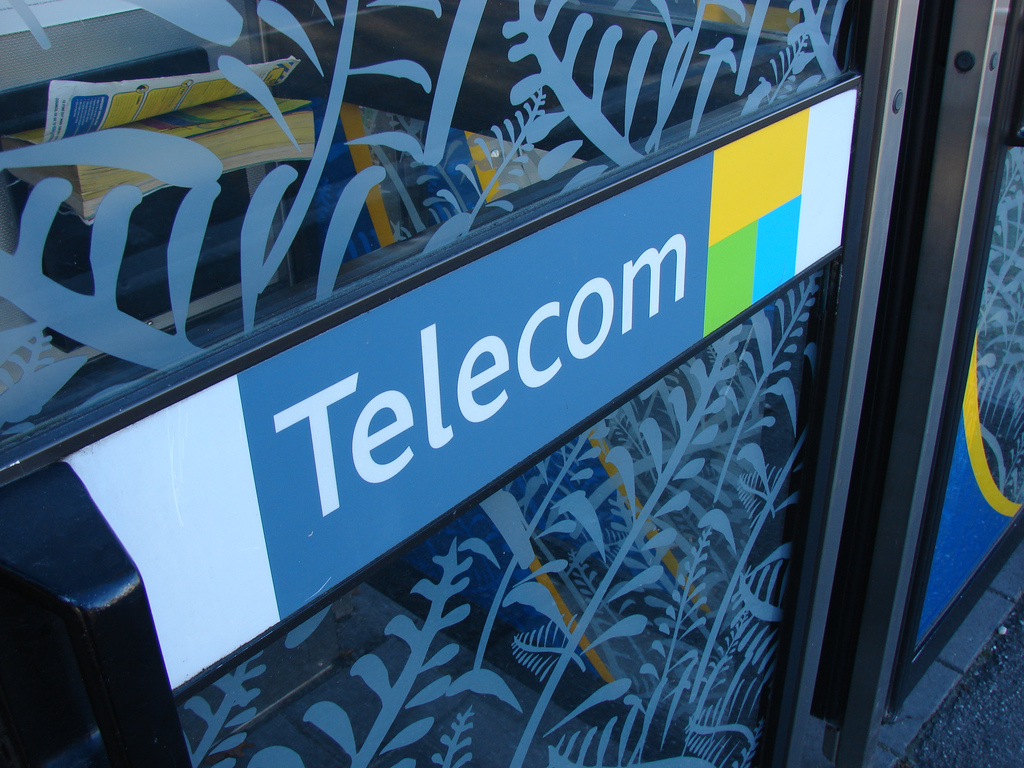A blog reader notes that Rogers is currently promoting a new Sony Ericsson phone that features an 8 GB MP3 player. The company claims that allows users to stuff up to 10,000 songs on the device. It is unclear how they arrive at that number but it is obviously wrong […]

Telecom by yum9me (CC BY-NC-ND 2.0) https://flic.kr/p/53jSy4
Telecom
JD Power Survey Finds Canadians Unhappy With Wireless
JD Power has released a survey that unsurprisingly finds that Canadians are unhappy with their choice of wireless services, particularly with respect to price competitiveness.
How the Internet On Cable Became the Internet as Cable
When Rogers Communications began promoting its Rogers@Home high-speed Internet service nearly a decade ago, the company branded it "the Internet on Cable." My weekly column (Toronto Star version, homepage version, Ottawa Citizen version, Tyee version) notes that years later, their service, as well as those of their competitors, is gradually morphing into "the Internet as Cable" as broadcasters, Internet service providers, and cultural groups steadily move toward the delivery of content online that bears a striking resemblance to the conventional cable model.
While cable television has its virtues – some consumer choice, the ability to time shift programs by recording them with a VCR or PVR, and video on-demand offerings – it is largely premised on limited consumer control. Cable distributors determine channel choices, geographic distribution, and commercial substitution (with input from the broadcast regulator), offer only limited interactivity, and quietly even possess the ability to stop consumers from recording some programs.
Until recently, the Internet was precisely the opposite, offering unlimited user choice, continuous interactivity, and technological capabilities to copy and remix content. That is gradually changing as broadcasters seek to re-assert greater geographic control over their content, ISPs experiment with cable-like models for prioritized content delivery, and some creator groups lobby the Canadian Radio-Television and Telecommunications Commission to adapt Canadian content regulations to the Internet.
How the Internet On Cable Became the Internet as Cable
When Rogers Communications began promoting its Rogers@Home high-speed Internet service nearly a decade ago, the company branded it "the Internet on Cable." My weekly column (Toronto Star version, homepage version, Ottawa Citizen version, Tyee version) notes that years later, their service, as well as those of their competitors, is gradually morphing into "the Internet as Cable" as broadcasters, Internet service providers, and cultural groups steadily move toward the delivery of content online that bears a striking resemblance to the conventional cable model.
While cable television has its virtues – some consumer choice, the ability to time shift programs by recording them with a VCR or PVR, and video on-demand offerings – it is largely premised on limited consumer control. Cable distributors determine channel choices, geographic distribution, and commercial substitution (with input from the broadcast regulator), offer only limited interactivity, and quietly even possess the ability to stop consumers from recording some programs.
Until recently, the Internet was precisely the opposite, offering unlimited user choice, continuous interactivity, and technological capabilities to copy and remix content. That is gradually changing as broadcasters seek to re-assert greater geographic control over their content, ISPs experiment with cable-like models for prioritized content delivery, and some creator groups lobby the Canadian Radio-Television and Telecommunications Commission to adapt Canadian content regulations to the Internet.
Bell and Traffic Shaping
Many people have written to note that new reports from P2Pnet, Ars Technica, and Technaute.com indicate that Bell has admitted that it is traffic shaping peer-to-peer applications such as BitTorrent. I argued a couple of weeks ago that the starting point to address these issues is for far greater transparency […]






